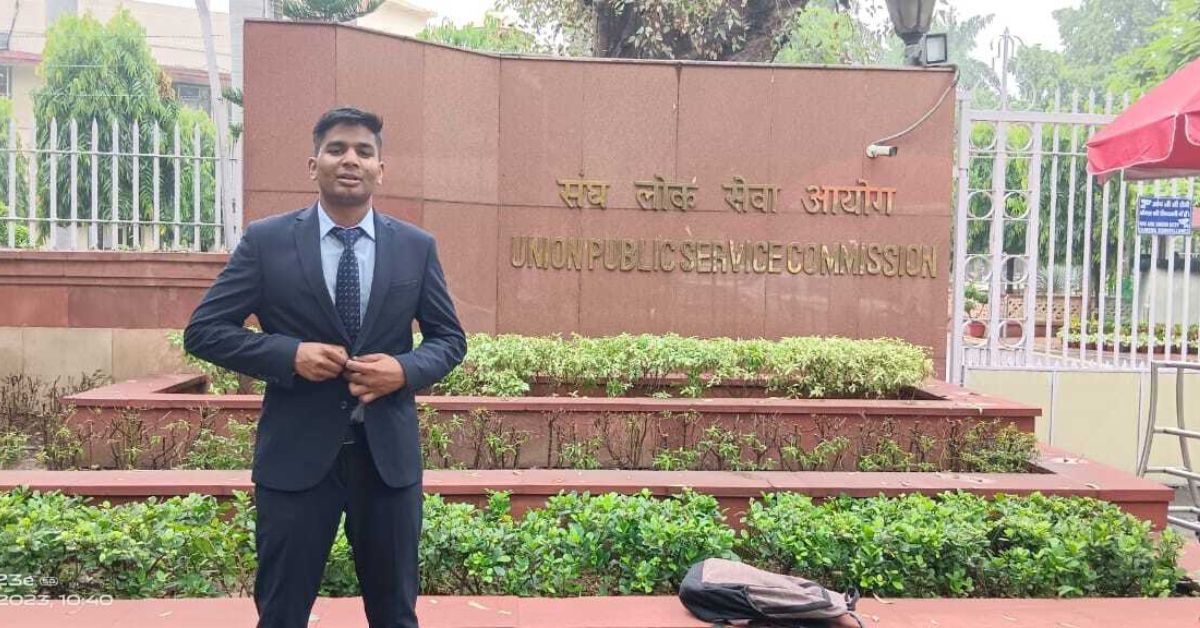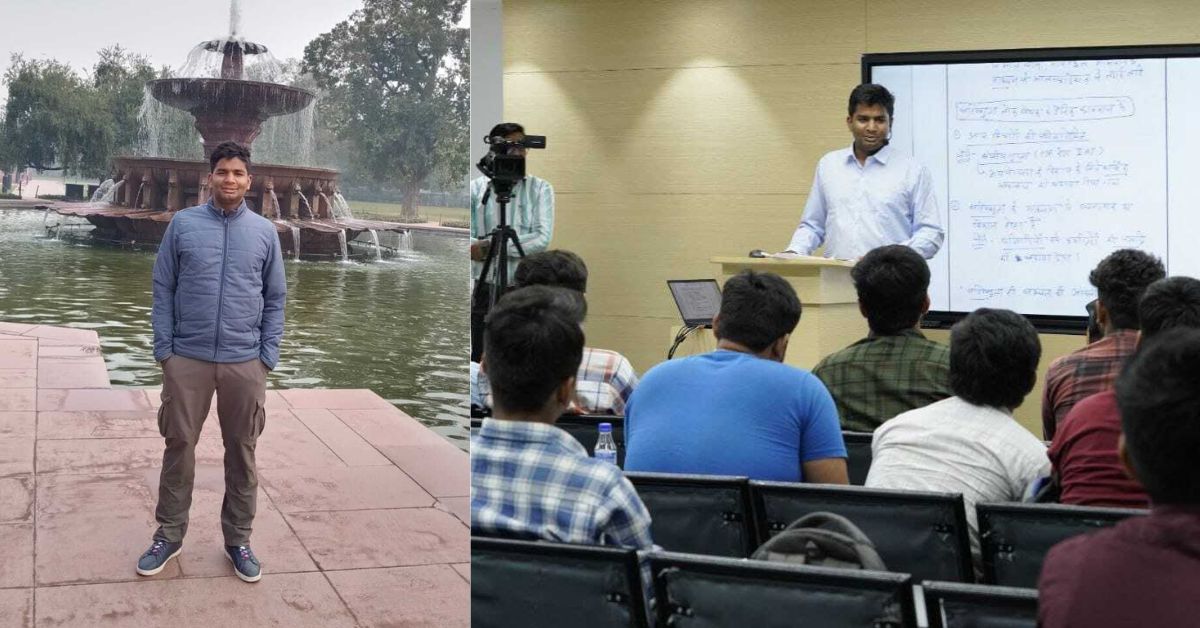Hailing from Jhunjhunu in Rajasthan, Karamveer Narwaniya embarked on a remarkable journey to serve the nation through the civil services. Armed with a degree in electrical engineering from NIT Kurukshetra, he set his sights on UPSC preparation after graduating in 2020.
Coming from a rural background, Karamveer was deeply affected by the disconnect he observed between government officials and the common public in his hometown. This ignited his desire to bridge the gap and work towards creating a more harmonious relationship between authorities and the people they served.
Initially aspiring to join the Army, he faced challenges during his attempts, eventually pivoting towards the UPSC path. But his journey towards UPSC success was fraught with setbacks, particularly regarding the Civil Services Aptitude Test (CSAT) component.
As part of the UPSC Civil Services Exam (preliminary), the CSAT tests the analytical skills, reasoning ability, and aptitude of aspirants. Candidates need to score only 33 percent, as this paper is qualifying in nature.
Karamveer excelled in the General Studies paper of the prelims, but the CSAT exam proved to be a significant hurdle in his initial attempts.
Despite familial pressures, uncertainties, and previous setbacks, Karamveer remained steadfast in his determination. His perseverance and dedicated preparation eventually paid off in his third attempt in 2023, when he not only cleared the prelims but also secured a rank of 954 in the IRMS (Indian Railway Management Service) category.
We sat down with the IRMS officer to learn how he embraced challenges, learnt from setbacks, and stayed committed to his goals, leading him to achieve success in the prestigious UPSC examination.

Strategic planning: Key to Karmveer’s UPSC success
One of the major turning points for Karamveer was his realisation of the importance of the CSAT exam and the need to focus on mastering its intricacies.
“The prelims comprise two sections of General Studies and CSAT. The latter is a qualifying paper where about 80 questions are asked. To clear the exam, one needs approximately 68 out of a total of 200 marks. In my first attempt, although I scored well in General Studies, I failed in CSAT by just three marks. To make matters worse, the gap increased to nine marks when I reappeared for the exam,” he recalls.
Coming from a middle-income background, Karamveer also faced immense pressure at home. “My father was in the Army, and our family was surviving on his monthly pension. There is immense uncertainty in this exam, and having failed twice added to the pressure. My family was confused about why I could not even clear the prelims. It was becoming difficult for me to stay motivated given the circumstances,” he adds.

The CSAT section continued to haunt him. “I was genuinely scared of CSAT. I needed to improve my strategy for this section, as I was performing well in General Studies,” he shares.
Highlighting his mistakes, Karamveer explains, “Coming from an engineering background, I was overly confident that I would be able to clear CSAT by focussing solely on Maths and Logical Reasoning. I neglected the English comprehension section and even avoided questions that seemed doable.”
“As an aspirant, we should not forget that UPSC tests your abilities in every section. You cannot choose to opt-out of topics that you are not comfortable with. In my third attempt, I set my ego aside and gave equal weight to all three sections. That is what UPSC expects — do not neglect anything,” he adds.
To overcome the challenges presented by this crucial component of the UPSC examination, Karamveer strategically adjusted his preparation approach. He dedicated about three hours of study each day for three months to excel in this section.
However, merely attempting more comprehension questions was not enough. “At times, questions on basics like permutations and combinations, profit and loss, and percentages are designed to challenge even IIT students. To ace both Maths and Logical Reasoning, I started referring to notes meant for the CAT (Common Admission Test) exam,” he shares.
Karamveer also began analysing the last 10 years’ question papers and their answer keys. This analysis helped him understand the type of questions to expect in the exam. By focusing on all three sections of the CSAT, he was able to increase the number of questions he attempted. As a result, he says, he could score 90 out of the 200 marks in the exam on his third attempt.
Karamveer highlights the significance of perseverance, adaptability, and strategic planning in overcoming challenges and achieving one’s goals. His journey underscores the importance of a well-rounded preparation strategy that encompasses not only a strong grasp of the subject matter but also a keen understanding of the exam’s specific requirements.
Edited by Arunava Banerjee. All photos: Karamveer Narwaniya.
No comments:
Post a Comment